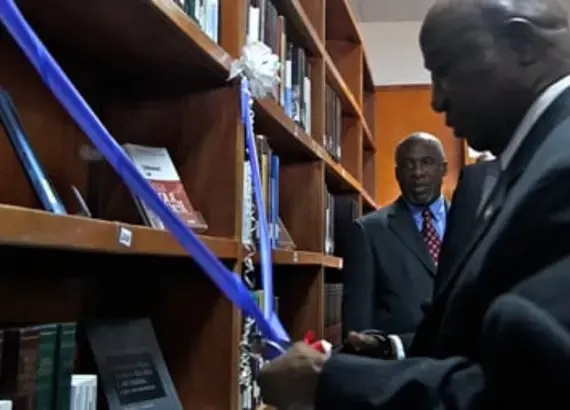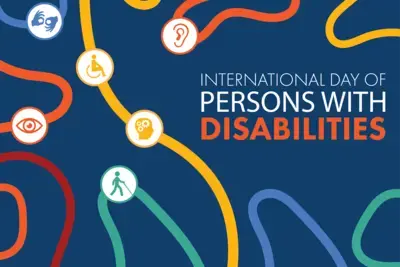
Success Story
New Library Helps Liberian MPs Write Legislation
When Senator Gloria Musu Scott decided to draft a bill to provide domestic partnership benefits for Liberians in common law marriages — a new concept in Liberia — she didn’t want to reinvent the wheel. So she visited Liberia’s new Legislative Information Service (LIS) to find how other countries have handled the issue and conducted an Internet search that turned up similar laws in several U.S. states.
Until a few months ago, Scott would not have had access to this kind of research. Much of the infrastructure in Liberia’s Capitol building was destroyed or looted during the country’s 14-year civil war, so when she came into office in 2006, all that remained of a legislative library was a small set of moldy books. Archived materials were piled high on the floor, and the research staff, which lacked computers and Internet access, was unable to respond quickly or efficiently to member requests.
All this changed in April when the new library opened its doors. The LIS now ensures that lawmakers and staff have access to a variety of up-to-date, accurate sources of information to help them draft bills and cast informed votes. Trained professionals provide research services, manage the library collection and maintain legislative archives.
"Before, if I wanted to do Internet research I would have to go to a public facility," Scott said. "But the atmosphere at the LIS is more conducive. It is quiet so you can really think. The staff is there to help if you have any problems."
In partnership with the legislature, NDI helped build the LIS with funding from the House Democracy Partnership of the U.S House of Representatives and the United States Agency for International Development. The Institute renovated the space and provided computers, reference books and Internet access. For now, the LIS is the only facility in the Capitol that provides Internet access. NDI also supplied research materials, including important historical legislative records and documents.
But the library is useful only if lawmakers know how to find the information they need. To that end, NDI also provides on-going specialized training to LIS staff on skills required of librarians, archivists and researchers. Staff learn to be proactive in providing information. For example, they have begun to maintain press clipping files and draft news summaries on important national issues. Staff have also been trained to use reference materials, such as encyclopedias, almanacs and dictionaries to respond to queries from lawmakers and staff. As a result, LIS staff have developed a reputation throughout the Capitol for their competence and dedication to a more informed lawmaking process.
Although the future of the domestic partnership legislation remains uncertain, Scott said the information she gathered at the LIS has strengthened her arguments in favor of the bill and helped her build support for it among her colleagues. Combating skepticism with information, she meets them individually and draws on her research to describe the benefits that other countries have seen from such laws. She has convinced several influential members of the value of the bill and continues her efforts to persuade the rest.
Related:
Published July 7, 2011



